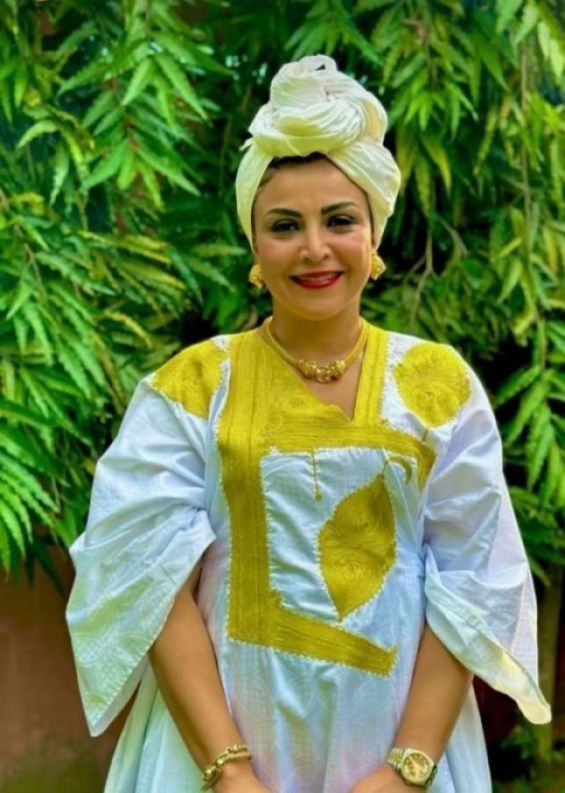It wasn't until she moved to Côte d'Ivoire that she realized her strong attachment to Morocco and its culture. This wasn't the first time she had left the kingdom, however. She had previously lived in France to pursue her higher education, where she obtained a master's degree from the University of Clermont-Ferrand.
After graduating from university in France, she decided to return to her homeland, where she joined the multinational pharmaceutical laboratory Servier. There, she worked first in the commercial department and then transitioned to the marketing department. «At that time, I had the opportunity to work with the laboratory's branches in African countries, including Morocco and Côte d'Ivoire», she told Yabladi.

«During this period, I had the best turnover compared to other African countries. This time barely coincided with Côte d'Ivoire's emergence from a civil war», Kaoutar told Yabladi.
Moving to Côte d'Ivoire
As Côte d'Ivoire became a stable country, the lab started considering opening a representative office in Abidjan. They did so in 2014, and Kaoutar was selected to travel to Abidjan with other officials for what was initially planned as a one-week trip. However, after the trip, they offered her a permanent position.
Kaoutar immediately accepted the offer, but her boss advised her to take more time to consider it, as he knew that «moving to Abidjan is not an easy decision». «I went back to Morocco, spoke with my father, and received his encouragement», she said. She moved to Abidjan in late 2014, working as the administrative coordinator of the Francophone network for Servier Lab.
«Côte d'Ivoire is a rich country, but in terms of development, infrastructure, and administration, it still lags behind Morocco. Abidjan was a city with limited resources, so in my spare time, I used social media to promote Moroccan culture in this African country. This initiative coincided with a visit by King Mohammed VI to Côte d'Ivoire».
She was invited by the Moroccan embassy to join the reception committee for the king's arrival at the airport. To showcase her love for her country, she requested a special caftan from her mother in Morocco. «I described it as needing the Moroccan emblem with the two lions and a Quranic verse», she said.
«Within a week, it arrived. As I greeted His Majesty the King, I ensured the side with the inscription 'If God helps you, none can overcome you' was visible, which made the king laugh».

With Morocco's projects in Côte d'Ivoire increasing, Kaoutar took the initiative to prepare traditional dishes like couscous for the construction workers, including those at the newly opened King Mohammed VI Mosque. She also actively participated in all Moroccan events.
In 2017, during the king's second visit, Kaoutar wanted a unique way to greet him. She wore a Moroccan Caftan decorated with a full map of Morocco. «During the reception, a bodyguard initially directed me away, but the king insisted on seeing me. We took a picture together, and I explained the map symbolized the Moroccan Sahara», she said. «He replied, 'God bless you,' and added, 'You are the best ambassadors for Morocco'».
Promoting Moroccan culture
Kaoutar continued working at the pharmaceutical lab until 2016. That year, she married an Ivorian citizen and decided to establish her own company, «South-South Relations» to promote cultural exchange between Morocco and Côte d'Ivoire.
Despite her success, Kaoutar took breaks in 2017 and 2019 to focus on her family. However, before the 2022 World Cup, she felt a renewed sense of purpose. «The embassy contacted me about hosting national team matches», she said. «Initially, I volunteered, handling decorations and food preparation».

As these gatherings grew larger and required more resources, Kaoutar established Dar Al-Maghreb. This company now participates in every Moroccan-related event in Côte d'Ivoire.
Following the World Cup, Kaoutar organized the Moroccan pavilion at the Arab Cultural Days exhibition. «Over five days, each day showcased a different Moroccan city through food, dress, and culture», she explained. «Morocco's pavilion even won, surpassing wealthier Arab nations like Saudi Arabia, the UAE, and Qatar».
In June, Côte d'Ivoire launched a beach cleaning campaign called «Boundif», inspired by Morocco's clean beach initiatives. They also organized a large event celebrating the anniversary of the Green March, with around 500 attendees. «I managed the VIP room and prepared Moroccan sweets and food», Kaoutar said.
«Growing up, I lived in various cities due to my father's work at the Royal Gendarmerie», she said. «Since my mother is from Fez, I consider my customs Fezian, and I learned to cook from her. Although I wasn't initially interested, cooking became a passion fueled by my love for Morocco».

Dar Al-Maghreb has become the leading Moroccan representative for events and conferences in Côte d'Ivoire. Kaoutar strives to maintain this position «through excellence, refinement, dedication, and the values instilled in us by our homeland», she says.
During the 2023 Africa Cup, held in Côte d'Ivoire, Kaoutar’s home, decorated in a distinctly Moroccan style, became a haven for Moroccan fans. «Moroccans are known for their hospitality», she said. «Here, I represent Moroccan culture, customs, and traditions». She even organized a large Iftar gathering for over 500 Moroccans, fostering «our unity and solidarity as Moroccans».




 chargement...
chargement...













